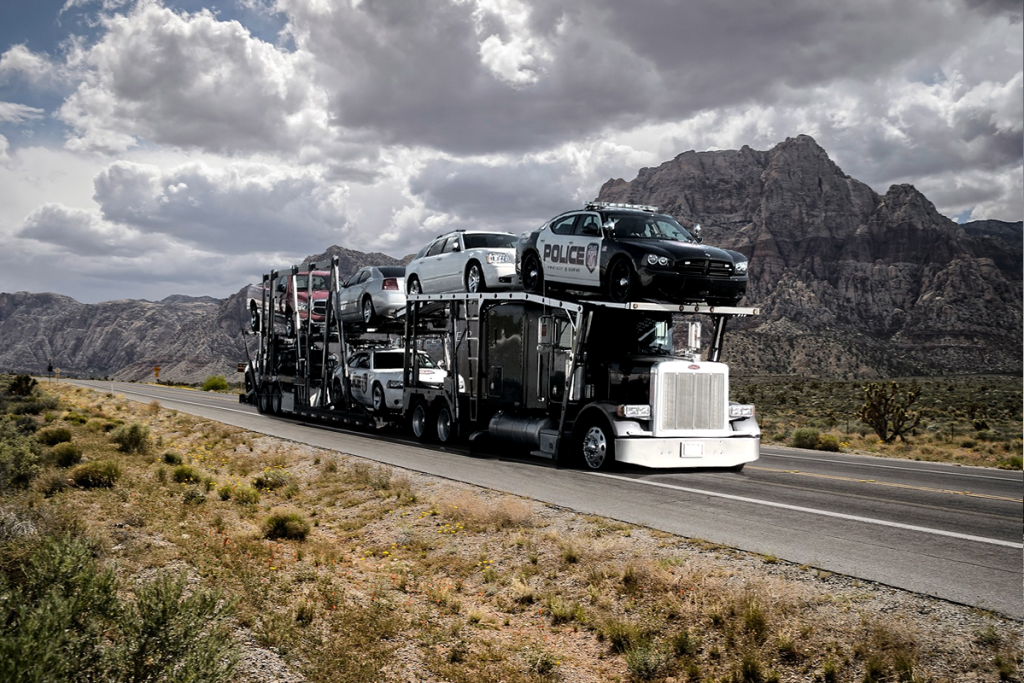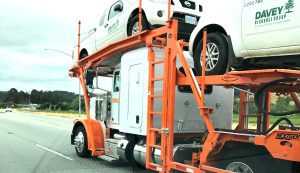Understanding The Basics Of Shipping A Non-Operational Vehicle
Shipping a non-operational vehicle to Hilo involves several considerations and procedures that differ from transporting a fully functional car. Firstly, understanding the term “non-operational” is crucial. A non-operational vehicle is one that cannot be driven due to mechanical issues, severe damage, or incomplete assembly. This status significantly influences the shipping process because standard methods used for operational vehicles might not be applicable.
The first step in shipping such a vehicle is selecting a specialized vehicle transport company experienced in handling non-functional cars. These companies typically possess the necessary equipment, such as winches and forklifts, to load and unload vehicles that cannot move under their own power. It’s essential to communicate clearly with the transport service about your vehicle’s condition so they can prepare adequately.
Another important aspect is the cost. Shipping a non-operational vehicle often incurs higher fees compared to operational ones due to the extra labor and equipment required. The logistics of moving a car onto a ship without it being able to drive itself adds complexity and time.
In addition, preparing your non-operational car for shipment involves securing loose parts and ensuring all personal belongings are removed from inside the vehicle. This preparation minimizes potential damages during transit and adheres to shipping regulations.
Finally, documentation plays a key role in this process. You will need proof of ownership, insurance details, and possibly an inspection report outlining the car’s condition before shipment begins.
In summary, while shipping a non-operational vehicle to Hilo presents unique challenges compared to transporting an operational one, understanding these basics—from selecting an appropriate transport company to preparing your car—ensures a smoother experience.
Legal Requirements For Shipping Vehicles To Hilo
Shipping a non-operational vehicle to Hilo involves navigating a series of legal requirements designed to ensure safety, environmental compliance, and proper documentation. First and foremost, it is essential to have clear ownership of the vehicle. The shipper must present the original title or a lienholder authorization letter if there is an outstanding loan on the vehicle. This documentation confirms that the shipper has the legal right to transport the vehicle.
Another critical requirement is ensuring that the vehicle meets Hilo ’s strict environmental standards. Non-operational vehicles often pose additional challenges because they may not comply with emission standards or be in poor condition. As such, it might be necessary to provide evidence that any potential environmental hazards have been mitigated, such as removing hazardous fluids or securing loose parts.
Insurance coverage is also paramount when shipping a non-operational vehicle to Hilo . Most shipping companies require proof of insurance that covers both transit and any potential liabilities arising from moving an inoperable car. This insurance protects all parties involved from financial loss due to damages incurred during transportation.
Moreover, there are specific regulations governing how non-operational vehicles must be prepared for shipment. For example, depending on its state of disrepair, you might need specialized equipment like forklifts for loading and unloading. Shipping companies usually mandate these preparations to comply with maritime safety laws and ensure secure transport.
Lastly, port authorities in both origin and destination locations may have their own set of rules which must be adhered to strictly. Proper coordination with these authorities ensures smooth processing upon arrival in Hilo .
In summary, shipping a non-operational vehicle to Hilo requires meticulous attention to legal documentation, environmental compliance, insurance coverage, preparation protocols, and adherence to port-specific regulations.
Choosing The Right Shipping Method For Your Non-Operational Vehicle
When considering the shipment of a non-operational vehicle to Hilo , selecting the appropriate shipping method is crucial. The unique challenges posed by transporting an inoperable car necessitate careful planning and a thorough understanding of available options.
The most common methods for shipping vehicles are roll-on/roll-off (RoRo) and container shipping. RoRo involves driving operational vehicles onto a ship’s deck, securing them in place, and driving them off upon arrival. However, this method is not feasible for non-operational vehicles since they cannot be driven on or off the vessel. Instead, container shipping is generally more suitable for such scenarios.
Container shipping allows your non-operational vehicle to be placed inside a secure container, which can then be loaded onto a cargo ship. This method provides additional protection from external elements such as weather and saltwater exposure during transit. Furthermore, it minimizes the risk of damage that could occur when handling or moving the vehicle multiple times throughout the journey.
Another consideration is whether to opt for shared or exclusive container use. Shared containers can help reduce costs by allowing multiple vehicles to be shipped together; however, this may introduce delays if other vehicles are not ready for transport at the same time as yours. Exclusive containers ensure that your vehicle can be shipped according to your schedule but come with higher expenses.
Working with a reputable vehicle transport company experienced in handling non-operational vehicles is essential. They can offer expert advice on preparing your car for shipment and provide specialized equipment like winches or forklifts needed to load and unload your inoperable vehicle safely.
In conclusion, while transporting a non-operational vehicle to Hilo presents unique challenges, choosing container shipping—paired with professional guidance—can ensure that your car arrives securely and efficiently at its destination.
Preparing Your Non-Operational Vehicle For Transport
Preparing your non-operational vehicle for transport to Hilo involves several key steps to ensure a smooth and hassle-free shipping process. Initially, it’s important to document the vehicle’s current condition. Take detailed photographs from all angles, noting any existing damage or wear and tear. This documentation will be crucial in case any disputes arise regarding the vehicle’s condition upon arrival.
Next, remove all personal items from the interior of the car. Shipping companies typically prohibit personal belongings inside the vehicle during transport for safety and liability reasons. Additionally, securing or removing any loose parts such as antennas or custom spoilers is essential to prevent damage during transit.
It’s also advisable to check for fluid leaks and address them beforehand. Although your vehicle is non-operational, ensuring it doesn’t have leaking fluids is crucial as this can cause complications during loading and unloading processes.
If your car has an alarm system, make sure it’s deactivated or provide clear instructions on how to deactivate it if necessary. An active alarm can cause delays and unnecessary hassles during shipping.
Given that the car is non-operational, inform the shipping company about its condition so they can make appropriate arrangements for handling it. Non-operational vehicles often require special equipment like winches or forklifts for loading onto trailers, so upfront communication will help avoid unexpected issues.
Lastly, ensure you have all necessary paperwork in order. This includes proof of ownership and any required permits or documentation specific to transporting vehicles into Hilo . By taking these preparatory steps seriously, you pave the way for a smoother transport experience of your non-operational vehicle across the Pacific Ocean.
Costs Involved In Shipping A Non-Operational Vehicle To Hilo
Shipping a non-operational vehicle to Hilo involves several costs that can add up quickly, making it crucial to understand all the potential expenses before committing to the process. The primary cost is the shipping fee itself, which can vary depending on the distance, the shipping company, and the specific route taken. Transporting a vehicle from a mainland U.S. port to Hilo typically ranges from $1,000 to $2,500.
However, non-operational vehicles often incur additional charges due to the extra effort and equipment needed for loading and unloading.
Another significant expense is towing. Since the vehicle cannot be driven onto and off of transport carriers or ships under its own power, specialized equipment like forklifts or cranes may be necessary. This service can add several hundred dollars to your total bill depending on how complex and time-consuming it is.
Insurance is another critical cost factor. While basic shipping insurance might be included in your quote, it may not cover all potential risks associated with transporting a non-operational vehicle. Therefore, purchasing additional coverage could be advisable for peace of mind.
Port fees are also part of the equation when shipping a car to Hilo . These fees cover handling at both departure and arrival ports and can range from $100 to $500 or more based on port regulations and services required.
Lastly, there might be hidden costs such as storage fees if there are delays in picking up your vehicle upon arrival in Hilo or if it needs temporary housing while awaiting repairs.
Understanding these various costs involved will help you budget more accurately and avoid unexpected financial surprises during this complex logistical endeavor.
Finding A Reliable Vehicle Shipping Company
Finding a reliable vehicle shipping company is essential when planning to transport a non-operational vehicle to Hilo . The process involves several critical steps and considerations to ensure that your vehicle arrives safely and on time.
Firstly, research is paramount. Begin by identifying companies that specialize in shipping vehicles to Hilo . Look for those with a strong reputation and extensive experience in handling non-operational vehicles. Online reviews, testimonials, and ratings can provide valuable insights into the reliability of these companies. Websites such as the Better Business Bureau can be particularly helpful in assessing their credibility.
Next, ensure that the company you choose is properly licensed and insured. Verify their credentials with relevant authorities such as the Federal Motor Carrier Safety Administration (FMCSA). This step is crucial as it guarantees that the company adheres to industry standards and regulations, offering you peace of mind regarding the safety of your vehicle during transit.
Communication with potential shipping companies is also vital. Contact them directly to discuss your specific needs, including the condition of your non-operational vehicle. A reliable company will provide clear information about their services, pricing structure, and any additional requirements for transporting an inoperative car.
Inquire about their methods for handling non-operational vehicles. Some companies may use specialized equipment like winches or lift gates to load and unload such cars safely onto carriers or ships. Understanding these logistics can help you determine if they are well-equipped for your particular situation.
Finally, obtain multiple quotes from different companies but avoid basing your decision solely on price. Consider factors such as customer service quality, delivery timelines, and overall reliability. Balancing cost with service quality will ensure that you select a dependable shipping partner capable of delivering your non-operational vehicle to Hilo efficiently and securely.
What To Expect Upon Arrival In Hilo
Upon arrival in Hilo with your non-operational vehicle, you can expect a series of steps and considerations to ensure a smooth transition. First and foremost, it’s crucial to be aware that your vehicle will need to clear customs before it can be released. This process involves verifying ownership documentation and ensuring all necessary fees have been paid. Be prepared for potential delays if any paperwork is missing or incomplete.
Once the vehicle has cleared customs, you’ll need to arrange for its transportation from the port to your desired location. Given that the vehicle is non-operational, this typically requires hiring a towing service or utilizing a flatbed truck. It’s advisable to coordinate this in advance, as availability can vary based on demand.
Another important aspect to consider is the registration and titling of your vehicle in Hilo . Even though it’s not operational, state law mandates that all vehicles must be registered within 30 days of arrival. This process involves providing proof of ownership, passing an inspection (if applicable), and paying registration fees. Keep in mind that certain counties may have additional requirements or fees.
Additionally, you should also consider where you will store your non-operational vehicle once it arrives. If repairs are needed before the car becomes operational again, having a designated space such as a garage or storage facility will be beneficial. Make sure this location complies with local zoning laws regarding unregistered or non-functional vehicles.
Lastly, familiarize yourself with any environmental regulations specific to Hilo regarding vehicles that are not in use for extended periods. Proper disposal of fluids and parts during repairs is essential for compliance with local environmental protection standards.
By understanding these expectations upon arrival, you’ll navigate the complexities of shipping a non-operational vehicle to Hilo more effectively.



